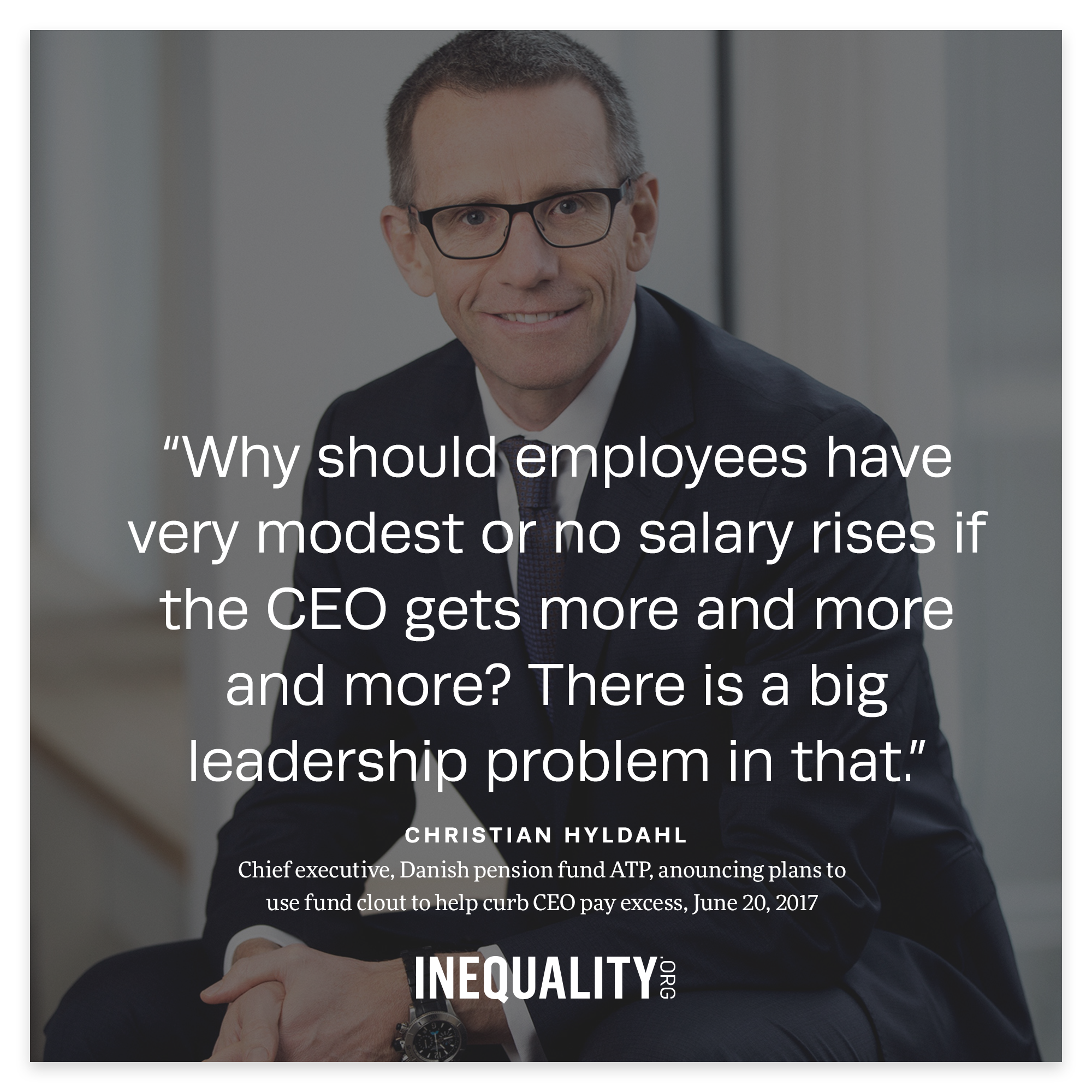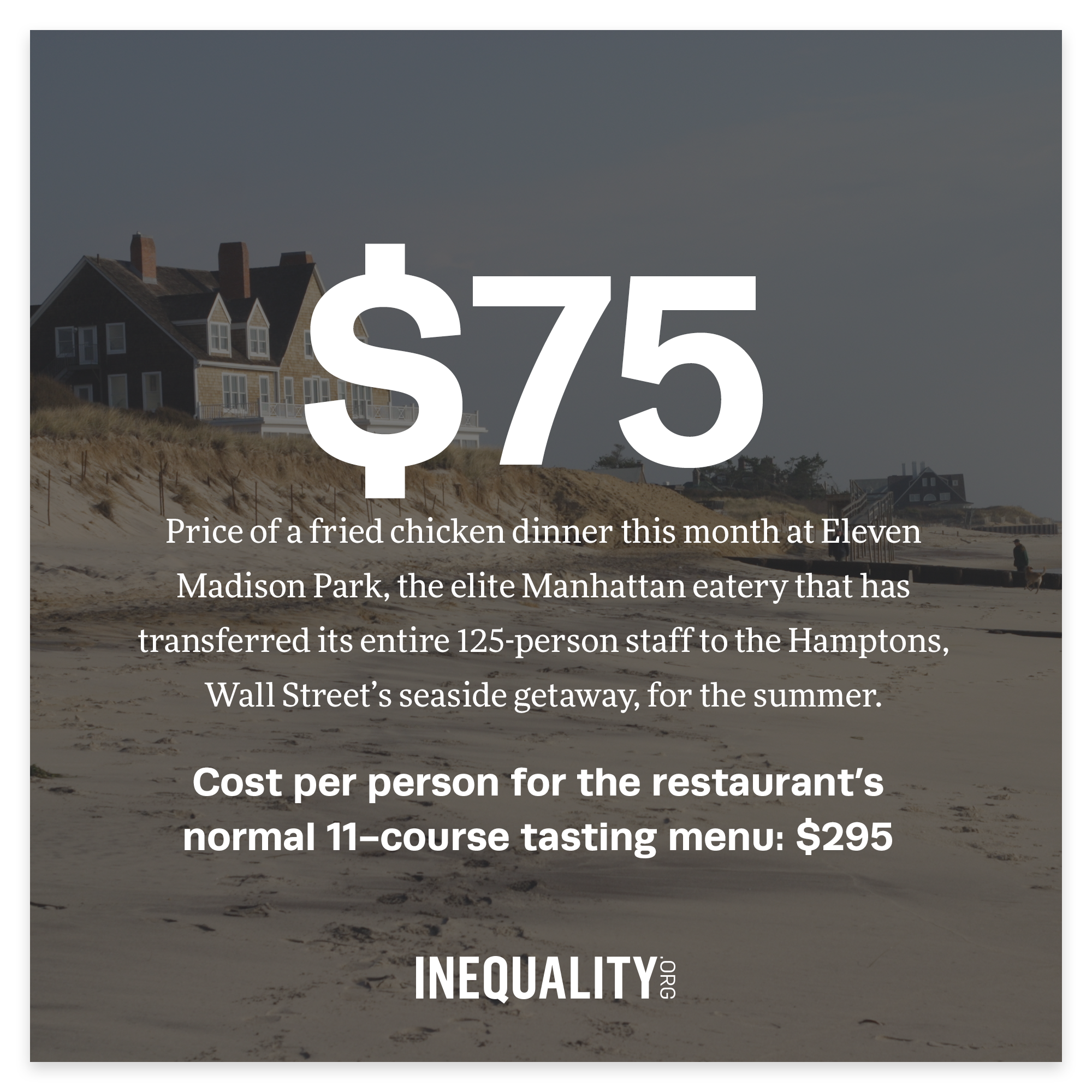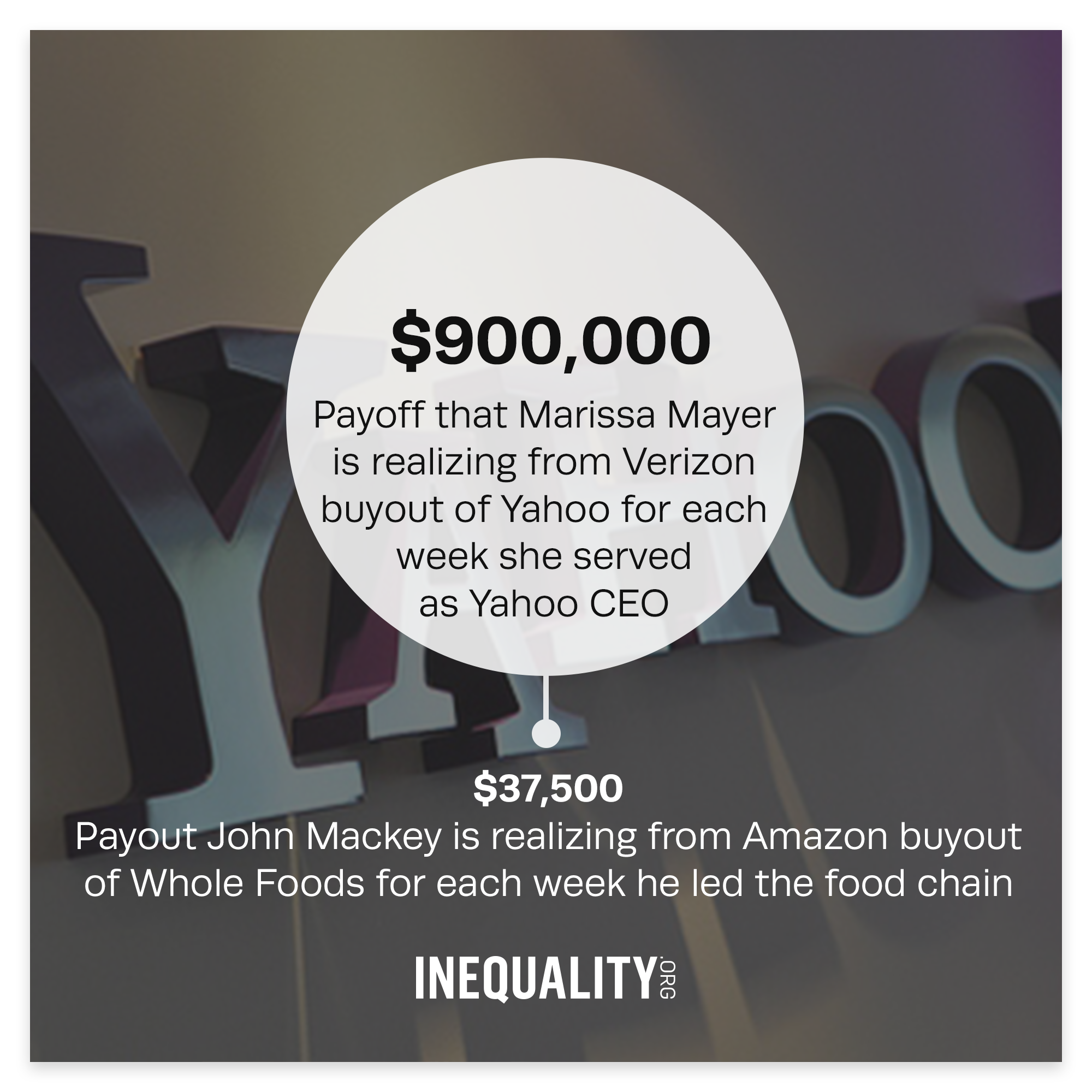|
THIS WEEK
|
Last week Senate Republicans unveiled still another stab at Trumpcare. This new health care bill looks every bit like earlier versions out of the House of Representatives: massive tax cuts for the wealthy made possible by massive increases in the ranks of the uninsured.
How can so many of our elected leaders have lost all semblance of compassion and empathy? Even Donald Trump himself has now called the earlier House-passed legislation “mean,” a surprising rebuke — and a colossal understatement. We sat down with a seasoned activist who can help us keep pushing forward in the face of a cruel and painful era. We have his advice — and more — in this week’s issue.
Chuck Collins, for the Institute for Policy Studies Inequality.org team
|
|
|
|
|
INEQUALITY BY THE NUMBERS
|
 |
|
|
|
|
|
|
FACES ON THE FRONTLINES
|
 |
|
Organizing to Take on Trump — and Trumpism
|
|
American progressives these days have good cause for feeling under siege. Almost every day seems to see the rollout of some new policy designed to attack worker rights, destroy the planet, or rob the public commons. The good news? Many folks never before politically involved are joining the ranks of longtime activists who’ve been here before. We caught up with one such longtime activist, Paul Shannon of the Mass People’s Budget Campaign, who has some unexpected advice for newcomers to egalitarian action. Says Shannon: “We should feel privileged.”
|
|
|
|
|
|
|
WORDS OF WISDOM
|
 |
|
|
|
|
|
PETULANT PLUTOCRAT
OF THE WEEK
|
|
How to Make Your Company Your Personal ATM
|
|
Shareholders at FleetCor Technologies, one of America’s smallest Fortune 1,000 companies, let out a resounding “no” last week at the suburban Atlanta company’s annual meeting. In non-binding balloting, they voted down CEO Ronald Clarke’s latest pay package. Since 2010, Clarke has collected over $300 million in compensation. The credit card-like services his company provides have also collected over 25 times more consumer complaints than his largest competitor. Clarke’s answer for his critics: “We’re in the business of satisfying clients or we wouldn’t have any.” Clarke has refused to comment on his latest shareholder rebuff. He’s leaving his defense to his wife Leeanne. Her explanation why Clarke makes so much: “People want to reward brilliance.” |
|
|
|
|
MUST READS
|
Sociologist Brooke Harrington has spent years of her life deep undercover in the world of high finance, learning the craft and studying the lives of modern wealth managers. She has just sat down with Inequality.org’s Chuck Collins to share what she has learned — and what we can do about the trouble hidden fortune creates . . .
Also on Inequality.org this week, legal analyst Eric Kades offers up a fresh idea for enticing states to improve their regressive tax structures, via a carrot from the federal government.
Elsewhere on the web: Boston University economist David Weil explores the “fissured workplace” and the rise of interfirm inequality in an interview with the Washington Center for Equitable Growth’s Heather Boushey . . .
Americans for Tax Fairness lets us know what House speaker Paul Ryan really meant earlier this month when he promised plutocrats at the National Association of Manufacturers “we’re going to fix this nation’s tax code once and for all.”
Public Citizen’s Alan Zibel details the 80 corporate cronies Donald Trump has nominated to sub-cabinet positions — and their major conflicts of interest. Is this what Trump meant by “draining the swamp”?
Meanwhile, across the pond, the recent British elections have progressive thinkers reminding conservatives that their cherished “free markets” need equality to have a prayer at working. Chris Dillow explains . . . The surprising big gainer in those elections, the Labour’s Party Jeremy Corbyn, is proposing requisitioning empty expensive homes in the posh neighborhood surrounding the now infamous Grenfell Tower to house survivors from that building’s tragic fire.
Have you ever thought that glamorizing obscene wealth, as the Forbes 400 does, eats away at our world’s precious stock of empathy? George Lehner and his colleagues at the Fund For Peace have just created an anti-Forbes list of the world’s 400 poorest. |
|
|
|
|
GREED AT A GLANCE
|
 |
|
|
|
|
|
|
TOO MUCH
|
|
Untwisting the Modern History of U.S. Inequality
|
|
Back in the middle of the 20th century, no respectable business in America would ever consider replacing striking workers with permanent substitutes. Then, in 1981, President Ronald Reagan replaced striking air traffic controllers. He met with surprisingly muted opposition, and the President’s union-busting maneuver would soon speed a massive shift of national income and wealth to America’s 1 percent. What explains how little “respectable” business opposition Reagan faced? A long-forgotten labor conflict in Washington, D.C. holds the key. |
|
|
|
|
|
|
A FINAL FIGURE
|
 |
|
|
|
|
|
|